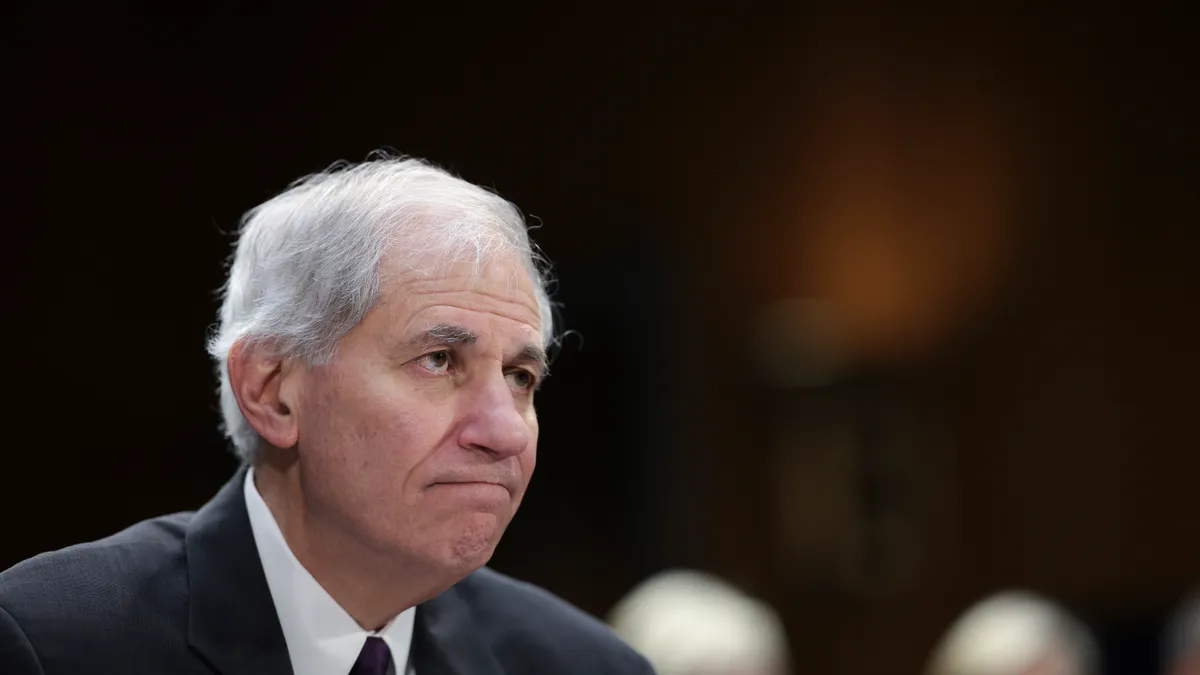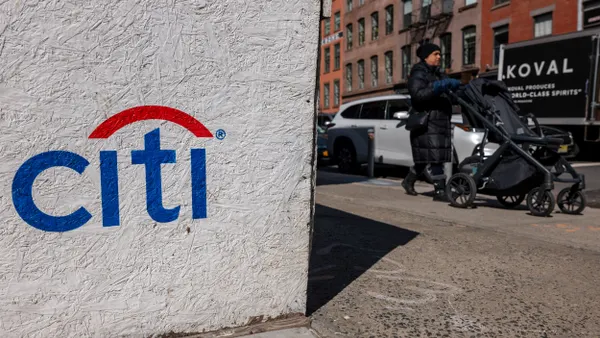The Federal Deposit Insurance Corp. withdrew proposals meant to curb asset managers’ power over banks due to lack of majority support at a board meeting Thursday.
Two similar but separate proposals, aimed at ensuring large asset managers remain “passive” investors in banks they own more than a 10% stake in, were introduced by FDIC Director Jonathan McKernan and Consumer Financial Protection Bureau Director Rohit Chopra but withdrawn, despite recognition by fellow board members that the measures’ goals were important.
McKernan, with support from FDIC Vice Chairman Travis Hill, proposed that the regulator set up and run a compliance program for such funds.
“All I’m trying to do is get us to monitor compliance with existing law … The proposal doesn’t require a change in law. It requires only that we enforce existing law,” McKernan said Thursday.
Chopra, with support from Chair Martin Gruenberg, proposed a rule that would have done away with an exemption for FDIC review of a change-in-control application of a bank holding company if the Federal Reserve reviews it instead.
“I am not aware of another provision by which the FDIC defers by rule to another agency on a matter affecting an FDIC-supervised institution,” Gruenberg said.
McKernan had flagged the issue – the influence of BlackRock, Vanguard and State Street, the so-called Big Three, over banks – in January.
“At least with respect to their index funds, the Big Three purport to be merely passive investors, but a growing body of evidence suggests that’s not always the case,” he said at the time.
“Due to the popularity of their index funds, each of the Big Three has large equity stakes in many publicly traded banking organizations, and some have speculated that that voting power could grow to perhaps 40 percent of shareholder votes,” McKernan added, citing a paper from economists at Harvard and Boston universities.
The proposed measures were shelved Thursday when FDIC director and Acting Comptroller of the Currency Michael Hsu did not support either one.
“[T]he issues at hand are novel and complex. The distinctions between proxy voting, stewardship, and control can be blurry. Opinions differ as to the impact and effectiveness of passivity mechanisms, such as mirror voting and choice voting,” Hsu said in a statement.
“For us, as regulators, the key question centers on how these things impact the safety, soundness, and resolvability of banks. Further research, analysis, and debate are clearly needed,” he said.
Asset managers, he said, should continue to make sure that their ownership stakes in banks promote safety, soundness and resolvability.
“Any evidence to the contrary will compel me to reconsider my posture on this issue,” Hsu said.
A spokesperson for an asset management industry trade association told Reuters that the current rules have been sufficient for years.
“For more than 20 years, U.S. bank regulators have concluded that regulated funds' passivity commitments ensure they do not exercise control over the banks in which they invest,” a spokesperson for the Investment Company Institute, which represents investment funds, told Reuters.
“Any suggestion that this regulatory approach should be changed lacks substantiation and could harm fund investors,” the spokesperson said.
McKernan and Chopra indicated they would fine-tune their proposals and reintroduce them in the future.














